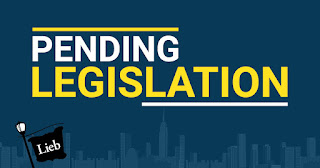We are always updating our CE courses at Lieb School because the law is constantly changing.
While the law changes on every topic, there is no field that seems to be evolving today more than anti-discrimination law. So, we thought it important to share our updated definitive lists of protected classes within downstate New York for Fair Housing and Discrimination Law.
Note - While these lists are similar for employment discrimination law, there are minor differences in protections between the two fields and you should consult with an attorney should you have any questions.
Fair Housing Act:
- Race
- Color
- National origin
- Religion
- Sex
- Familial status
- Handicap
- Race
- Creed
- Color
- National origin
- Sexual orientation
- Gender identity or expression (transgender)
- Military status
- Sex
- Age
- Disability
- Marital status
- Lawful source of income
- Familial status
- Arrest / sealed conviction record
- Domestic violence victim status (lease / occupancy only)
- Race
- Creed
- Color
- National origin
- Gender
- Age
- Disability
- Sexual orientation
- Uniformed service
- Marital status
- Partnership status
- Immigration or citizenship status
- Lawful source of income
- Presence of children
- Occupation
- Victim of domestic violence, stalking or sex offenses
- Race
- Color
- Religion
- Age
- National origin
- Alienage or citizenship status
- Ethnicity
- Familial status
- Creed
- Gender
- Sexual orientation
- Marital status
- Disability
- Source of income
- Status as victim of domestic violence, sexual abuse, or stalking
- Race
- Creed
- Color
- Gender
- Disability
- Age
- Religion
- Source of income
- Veteran status
- Sexual orientation
- Familial status
- Marital status
- Ethnicity
- National origin
- First responder status
- Visible traits of an individual such as natural hair texture, protective hairstyles & donning of religious garments or items and shall include segregation
- Race
- Color
- Creed
- Age
- National origin
- Alienage / citizenship
- Gender
- Sexual orientation
- Disability
- Marital status
- Sex
- Familial status
- Military status
- Visible traits of an individual, such as natural hair texture, protective hairstyles & donning of religious garments or items
- Lawful source of income
- Veteran status
- Victim of domestic violence












